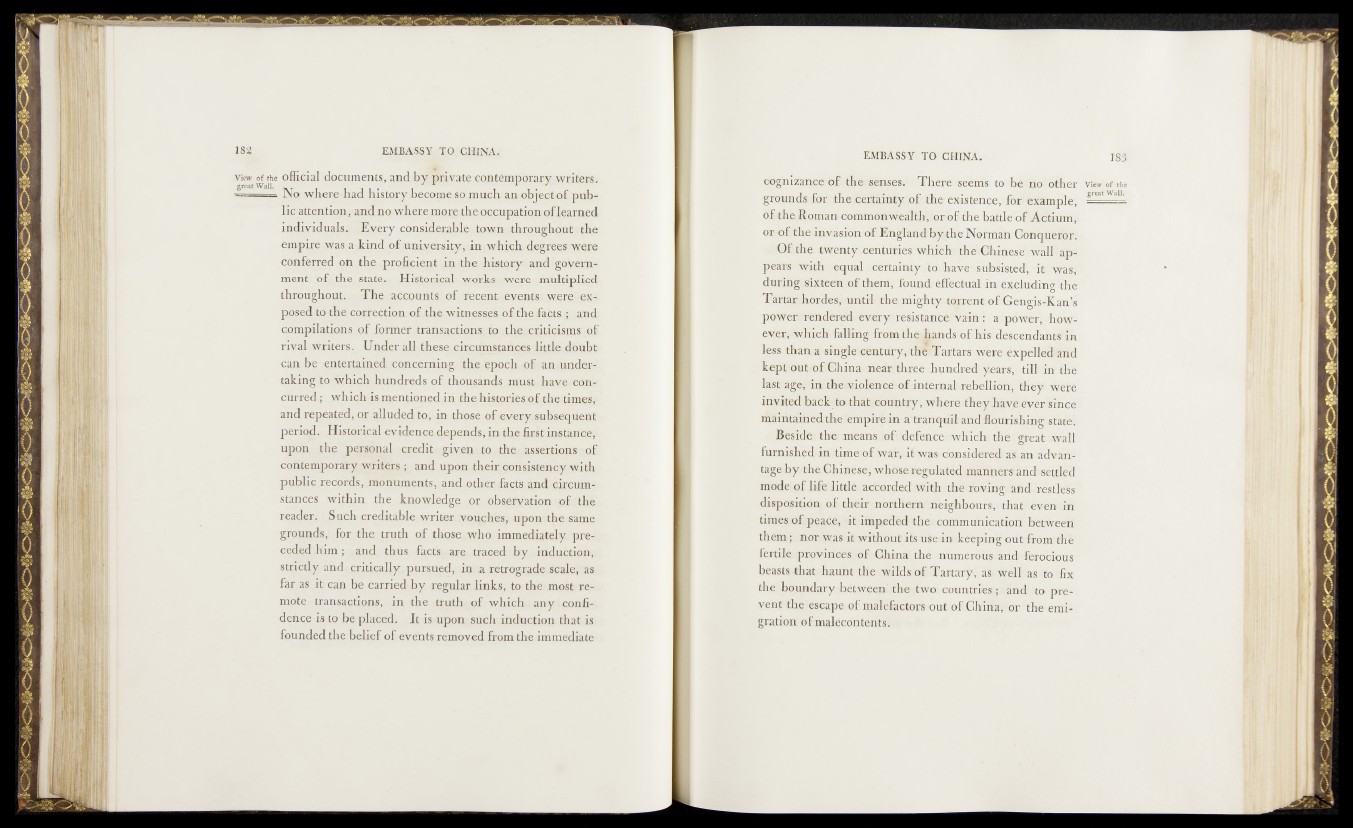
official [documents, and by private,contemporary writers.
Mp where*had histGryibpfO.me.sa> much am.objeptof pub-
liaafctention, :and nawheicmo.iCilfoe,occupation of learned
individuals., |j^,ery considerable j town throughout - the
empire..wa.s a kind of .university ,<in which degree stwjere
conferred on the ^proficient in the^^nstoryv a-ndi government
iof the state. Historical works—vvjere multiplied
throughout*.. The |aecpunts of recent .events; w>èr##e3ç-:
p^'igà;to thd correction, o fth e witnesses of the sfaots^and
compilations , of former transactions, to Ahe^edtiçismsjofi
rival writers.. Under-all these circumstancesiittle.doubt
can be jenteflsiined concerning^!16 fepocht^ofivan mnefer.-
taking ito which hundreds o f thousands musfcshav^dnÿ
cürred ; which“is mentioned in the historicsiaf thejigngs.,*
and reported, or alluded to, in .those ofxv^ry«^b^.nd|ft;
period- Historical evidence depends, in thefi^teingtpa^ev
upon.,the personal ,pedit given, to , thei'assertions-yof
contemporary writers ; and upon theindobsiS6enoy.#ith
public records, monuments, and otherdaeteand circumstances
within the knowledge or observation nfothe
reader.: ; Such creditable writer voimhes, upon Ah<^Sm.e|
grounds, for the truth of those who immediatelyrpferv.
ceded him ; , and thus facts are traced .b^iddduction,
strictly and -- critically. pursued, in a retrograde, scale, as.
far,as it can be carried by regular links, to the. most, re--
tnote ? transactions, in th e truth: o f which anyiconfi-
dèùce is to be placed. It is upon such induction that is
founded the belief of events removed from the immediate
cog.nizan®<^|§ thei-senses.l:Hhermseems to b^sho» other vfewefthe
grefundsisfe®' the'ceistainty p f the? e-fetenjee^for example, £reat ■
@^fthhdiomanfCQmm0nwedlthvbit©f;fehieh.a'M'e?8f Actium,
or of;thednv#asi6n of England :b yjtb^Mointan GoMpaerbr.
! ;'.Of the:- twenty seentmiei wMehs thetOhine^pallfap-
peaFrsf -vfith^-equal,iuextain|y«|td!.hayef'subsisted,'- it -Was'?
dufing'IshWeen^o-f them} founrdi©ff4^iil^im;ext|imdMf the>'
Tartar -hordes, untih the* mighty tqpenfc ©flpen^^KM^
•pjsfwpn rendered) e,very-heaista>n:ciSlv'a‘in : : avpdwer$phuW-
e-%¥^ w hi cirr felling iahm ’tkad|ands' ofshist descend ants in
le ^ th a n a* singie^Genfury, -th^Tart^rsfsfehfe^ex^ellefend
hjeptjout/of Ghina neaY.three:hund-redl-years,: till- in?H§!'
-IJsto'ggi in 1 thejwiolencecof; internal- rebolhqn5Sh‘b)|:;^e®g; ,
invited'back to that .country', whem(h3h%hav^Mr¥fndli
mairitainednhe’empire in atranquil-andfloudsBitogfeta«, .
Besides the =mean-srfo0#def^bqfew.hi^ tlieMgfea'&Wal'l
• furnish edtin tijnafof lwahdtlwas?c%isidere'd^a^ia^ Jadvan-
l^U^hyilfefGhipesej whbseiieguktbd mannersand
mode' of .life' Ihdhxaccorded-\vith the; Eovin-g' and restlfets^
disposition oh-their nortHe|hfn©ighbours,8thadl^/Mii-rt'
times*® fepgaqe, it impeded bhercommuhfcatdon'b'etwbeh*
them; nor* was it* without ifctukein -keepin-gtout from the
fertile»(provinces ,of Ghinai the * numerddslarid'dbrtocious
beasts that haunt the .wilids ©f-TartaE^ tftsfrelllas ‘tuffix
the^ boundary betwpentrfhev-two ■.ebiintr-iesj.^andlttoipre-
yqnt' thefesoape of mdlefeefcorsvout of CMifa#or ’ the emigration
of maleeohteritssfn